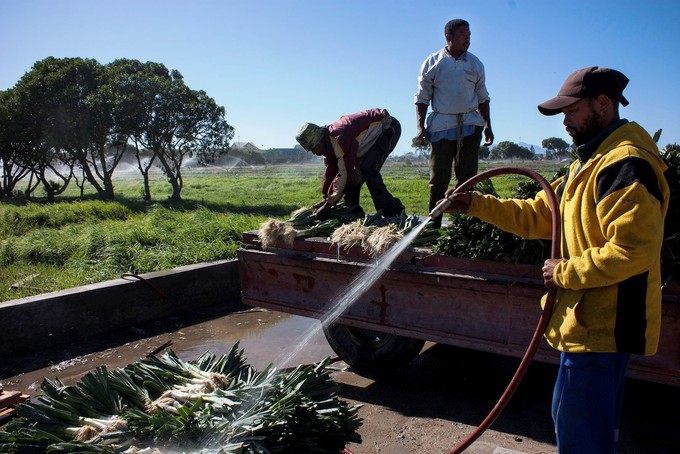
Farmworkers (from left) Siyabulela Lozipho, Diamond Beukes and Johannes Ruiter unload and wash leeks on a farm in Ward 80. Since the minimum wage for farmworkers was raised to R150 a day in 2013, the farm’s owners have cut their permanent workforce from about 45 to 30. Photo: Steve Kretzmann
31 March 2016
Many residents of ward 80 are not happy with their councillor.
Although situated in the predominantly urban Cape Flats, surrounded by Mitchells Plain, Strandfontein, Grassy Park and Manenberg, ward 80 is mostly rural. The entire Philippi Horticultural Area (PHA) is contained within the ward which supplies a substantial amount of Cape Town’s fruit and vegetable produce.
As it is a relatively sparsely populated area, the ward, covering about 35 square kilometres, is one of the largest in the city. It is marked by numerous informal settlements on its edges with 66% of its 15,832 households (counted in the 2011 census) living in shacks. Given the juxtaposition of shacks and open farming land, there is intense pressure to use the land for housing developments, rather than farming.
The decision in 2013 by the City of Cape Town to support an application by property developers to rezone the land from agricultural land to urban development met with strong opposition from environmentalists, urban design groups and Capetonians concerned about the negative effect the erosion of farmland would have on food security, especially for poor residents.
With its open land and wetlands, the PHA is the only remaining area that recharges the Cape Flats aquifer, a source of groundwater for farming as well as a potential reservoir of potable water for Cape Town in times of severe drought.
UN hydrogeologist Yongxin Xu – currently a professor at the University of the Western Cape – was quoted in the Daily Maverick as saying that the aquifer holds enough fresh water to supply the city with 30% of its potable water needs almost immediately.
A rezoning application was turned down by the provincial Minister of Local Government, Environmental Affairs and Development Planning, Anton Bredell, in January 2014. But the Land Use Planning Ordinance which pertained to the application was repealed as unconstitutional old-order legislation, and it was replaced by the Cape Town Municipal Planning By-law on 1 July 2015.
As a result, applications for residential and mixed-use urban settlements by companies U-Vest (who own 96 hectares) and Oaklands City Development Company (who own 472 hectares) are still underway.
There is believed to also be a pending application by Rapicorp, although the details of its land ownership are unknown.
While farming may account for the majority of land use in the ward, the vast majority of ward residents live in informal settlements or state-subsidised housing in the residential areas to the north and north east of the agricultural zone.
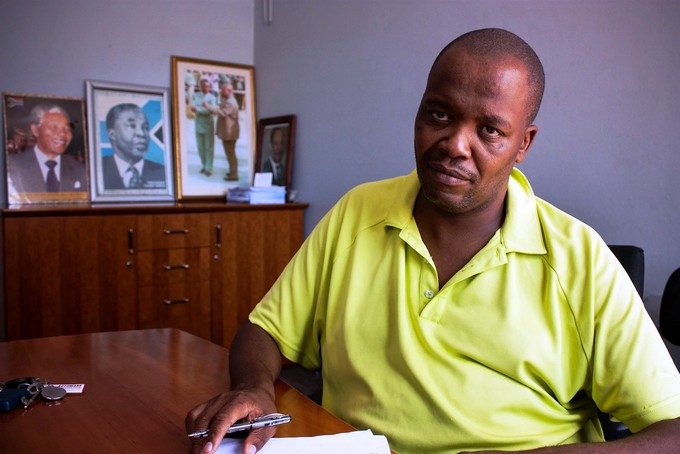
It is then no surprise that ward councillor Thembinkosi Pupa (ANC) is in favour of housing rather than protecting the agricultural and environmental value of the land. However, the farming activities of this ward benefit not only Pupa’s constituency by maintaining higher levels of food security than would be possible if all produce had to imported from beyond the boundaries of the Metropole, but also benefits poorer residents across the city.
As with all wards situated on the Cape Flats, and to the north of the city, there is insufficient housing for the population. Ward 80 is no exception. Informal housing in Ward 80 at 66% of households is over three times the average for the province (18.2%). Shacks, overflowing sewage and blocked stormwater drains are common sights in the built-up areas of the ward, standing in stark contrast to the agricultural area.
Pupa’s ward report lists a number of achievements over the past five years: electricity delivered to 5,741 households; delivery of 163 chemical toilets; installation of 920 flush toilets, each block of toilets with at least one tap and standpipes within a 50 metre radius from each other throughout the informal settlements. The Upgrading of Informal Settlement Projects is about to get underway in two areas. A tarred road and sewer lines have been put in place at Vukuzenzele. Pupa also claims that three housing projects totalling 349 houses and the Nompumelelo housing project of 315 units are underway.
Additionally, Pupa cites improvements to roads and parks, and having escalated over a thousands complaints regarding blocked “sewer drains” to the relevant departments.
He also claims to have organised eight separate social development programmes in the last financial year, including Neighbourhood Watch training, youth development training and skills development training.
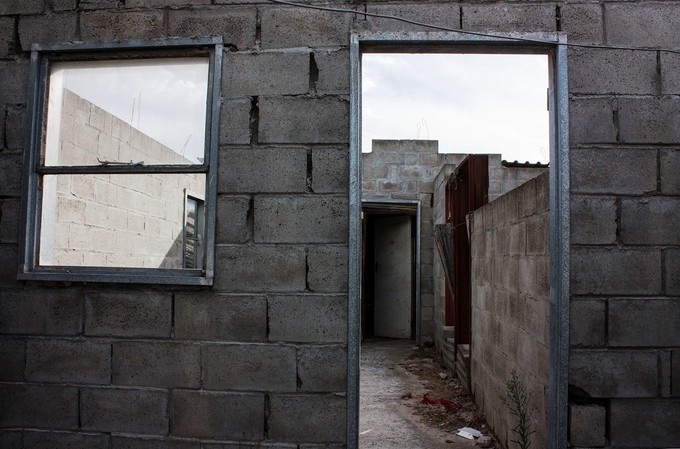
GroundUp spoke to community leaders and local ANC branch members living in the ward, as well as residents who are active in community forums. Without exception, they were not satisfied with Pupa’s delivery over the last five years and disputed many of his claims, with housing delivery hitting a particularly sour note.
For a start, said the residents, not a single housing project was initiated by Pupa, all having been started by previous councillors who handed over to him, whereupon the projects either fell apart or are grinding on at an achingly slow pace.
A project such as the Nompumelelo housing project, which began in 2004 and ground to a halt two years later after the contractor abandoned the site, is only now moving forward again after TNT Construction were given the go-ahead. A visit to the Nompumelelo housing project found a number of half-built houses, with the owners living in a shack on the plot. Houses which are fixed and inhabited were completed at the beneficiaries’ own expense.
GroundUp did not check, but community leaders in the informal settlements of Block 6 and Open Spaces claimed the situation is similar at the Moses Kotane and Luxolo projects.
Community leader Thobekile Rabi says he knows of at least 15 people who received the “papers” for their RDP houses in 2009, when Moses Baskiti was ward councillor, but they are still living in the informal settlement.
“Where are their houses?” asks Rabi.
He said that when Pupa was approached about the matter he told them it was not his responsibility because it happened before he came into office.
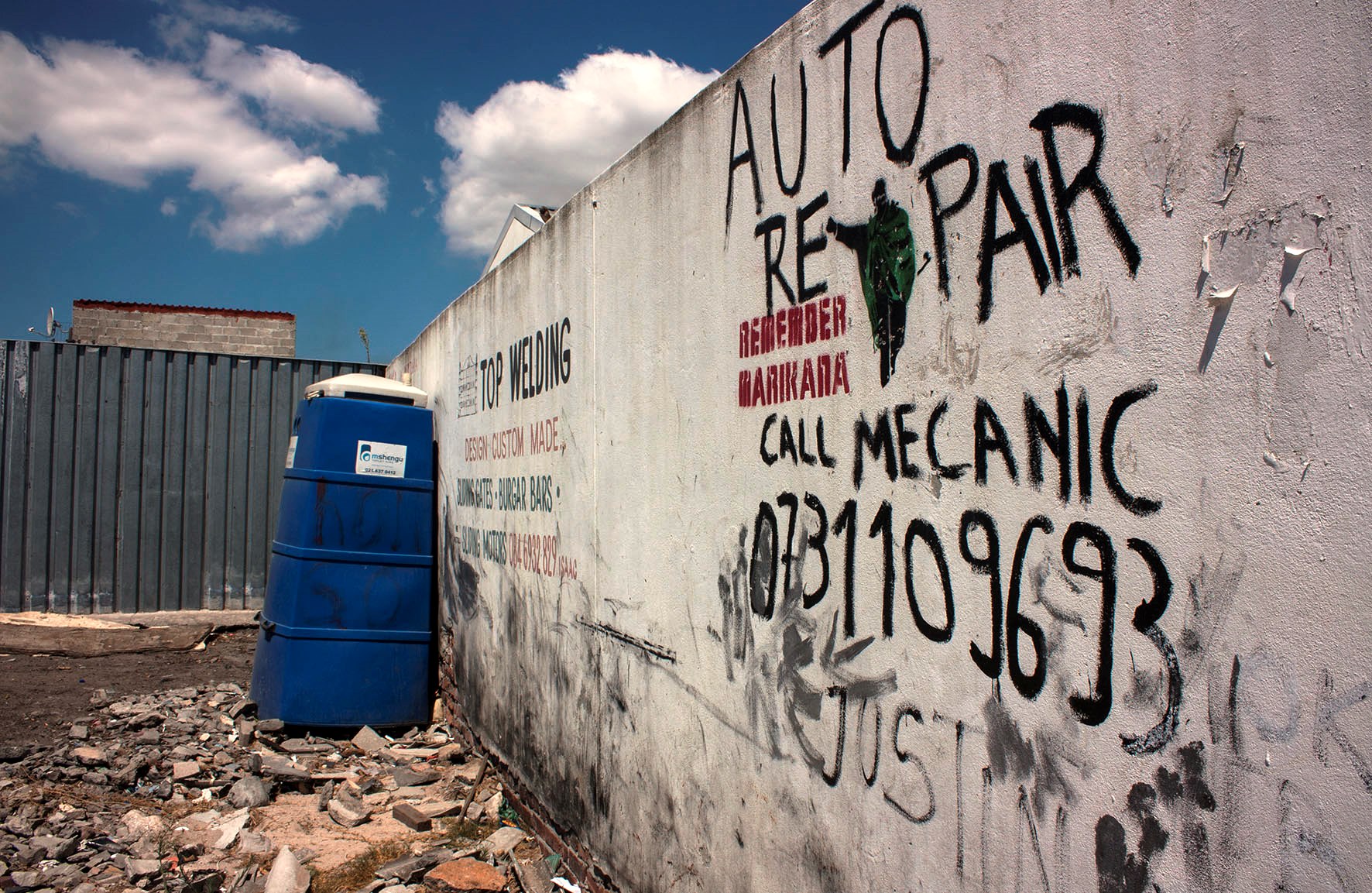
One thing that has been delivered is electricity. Almost all shacks have their own electricity box. And some areas, such as Block 6, have enough flush toilets for the population. But this is not sufficient delivery over a five-year period, says Rabi.
Rabi claims Pupa has held only two meetings with the Block 6 community of 642 households, the last one being in March 2016, which Pupa attended for only 20 minutes.
Pupa’s report on training programmes offered in partnership with the social development department, Sonke Gender Justice and “other organisations” is vague. The number of beneficiaries or trainees were not provided. In his report, he states that the youth “attended these programmes in numbers and they were given certificates to assist when applying for jobs”.
But of the eight programmes listed, two of them were disputed by people GroundUp spoke to.
Rabi said the Neighbourhood Watch programme was promised by Pupa over a year ago and participants were to receive a stipend, but “nothing has happened”.
ANC member Neliswa Arosi, 29, said some teenagers had benefited from youth development training, but they appeared to be people hand-picked by Pupa. “They never called a youth meeting. The people chosen for training are people they’ve chosen,” said Arosi.
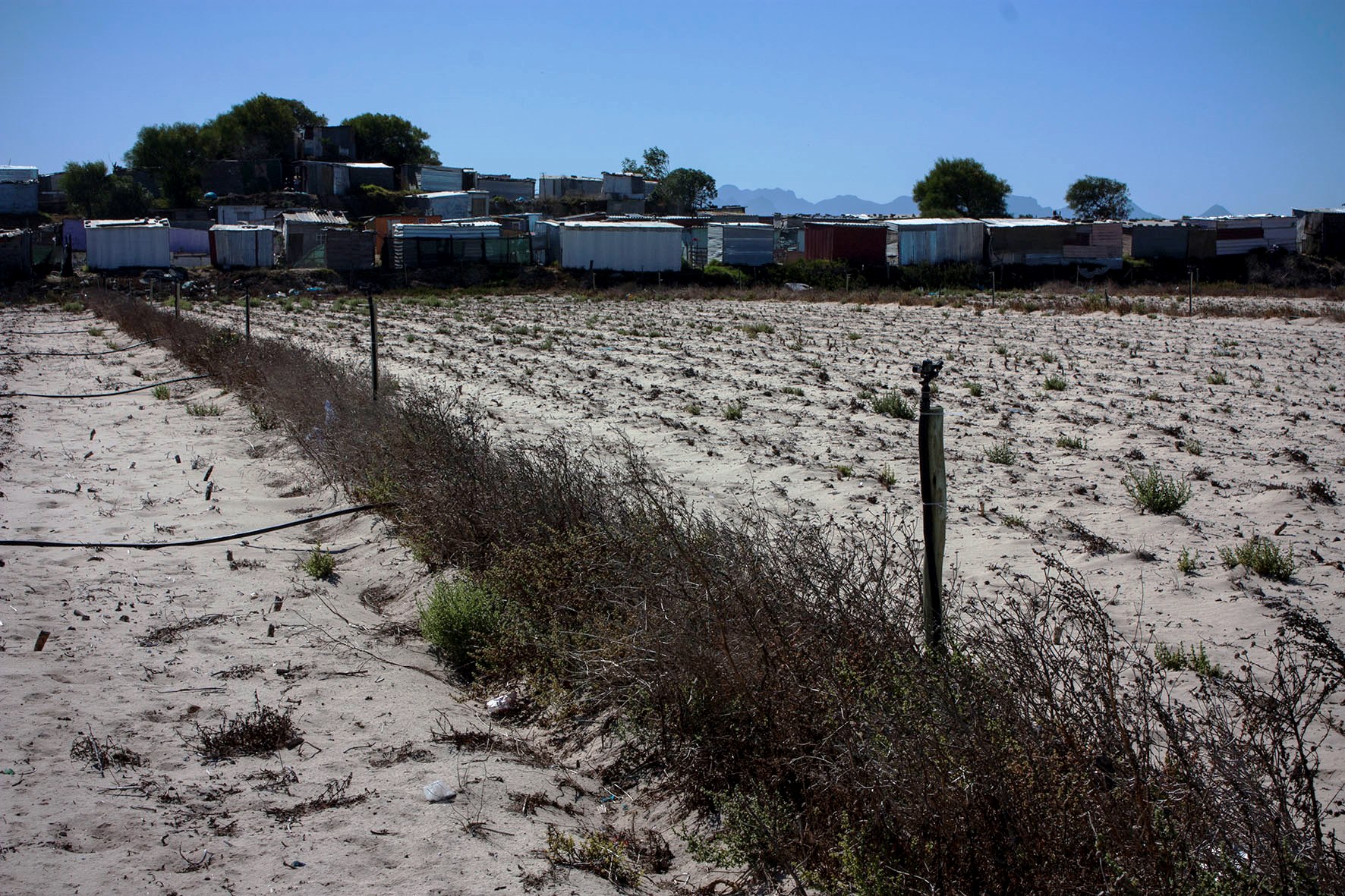
A cleaning contractor, who spoke on condition of anonymity (as he was not mandated to speak to the media), said Pupa was known to give Expanded Public Works Programme (EPWP) and Community Work Programme (CWP) jobs to pals, and there had been a number of protests over this issue.
Arosi said last year she was informed she was chosen from the city database to receive a CWP job in the area, but when she went to do the job, she was told there was a mistake in the process.
“I challenge Pupa in the meetings, so I have [been] told I will never get a job.”
A local ANC member said some people who had received cleaning jobs as part of the EPWP or CWP had kept the job for over a year, whereas the contract normally only lasts six months in order to allow other unemployed people a chance to earn an income.
“We see people cleaning the streets. We don’t know where they come from. Maybe they’re Pupa’s favourites.”
The cleaning contractor said official complaints of corruption regarding the provision of EPWP and CWP jobs had been made with the City Speaker.
City Speaker Dirk Smit confirmed there were complaints against Pupa that were being investigated, but he would not divulge the nature of the complaints.
There have been numerous service delivery protests by Ward 80 residents during Pupa’s term of office. The most noteworthy of these was when Pupa’s office was burnt down by residents from the Phantsi kweCingo informal settlement in September 2014.
The residents, whose shacks are crowded directly beneath an electricity pylon, were protesting about delays to a reblocking project which would allow them to move. Some 18 months later, the settlement remains beneath the power lines.
Other notable protests involved Sweet Home Farms informal settlement residents. On 5 March 2012, they burnt toilets on the corner of Duinefontein and Lansdowne Roads after receiving no response to their complaints over lack of service delivery from Pupa or the DA-led City.
Protests occurred again on 31 July after promises were not met, escalating into further violence, with police responding with rubber bullets, resulting in one man losing his eye.
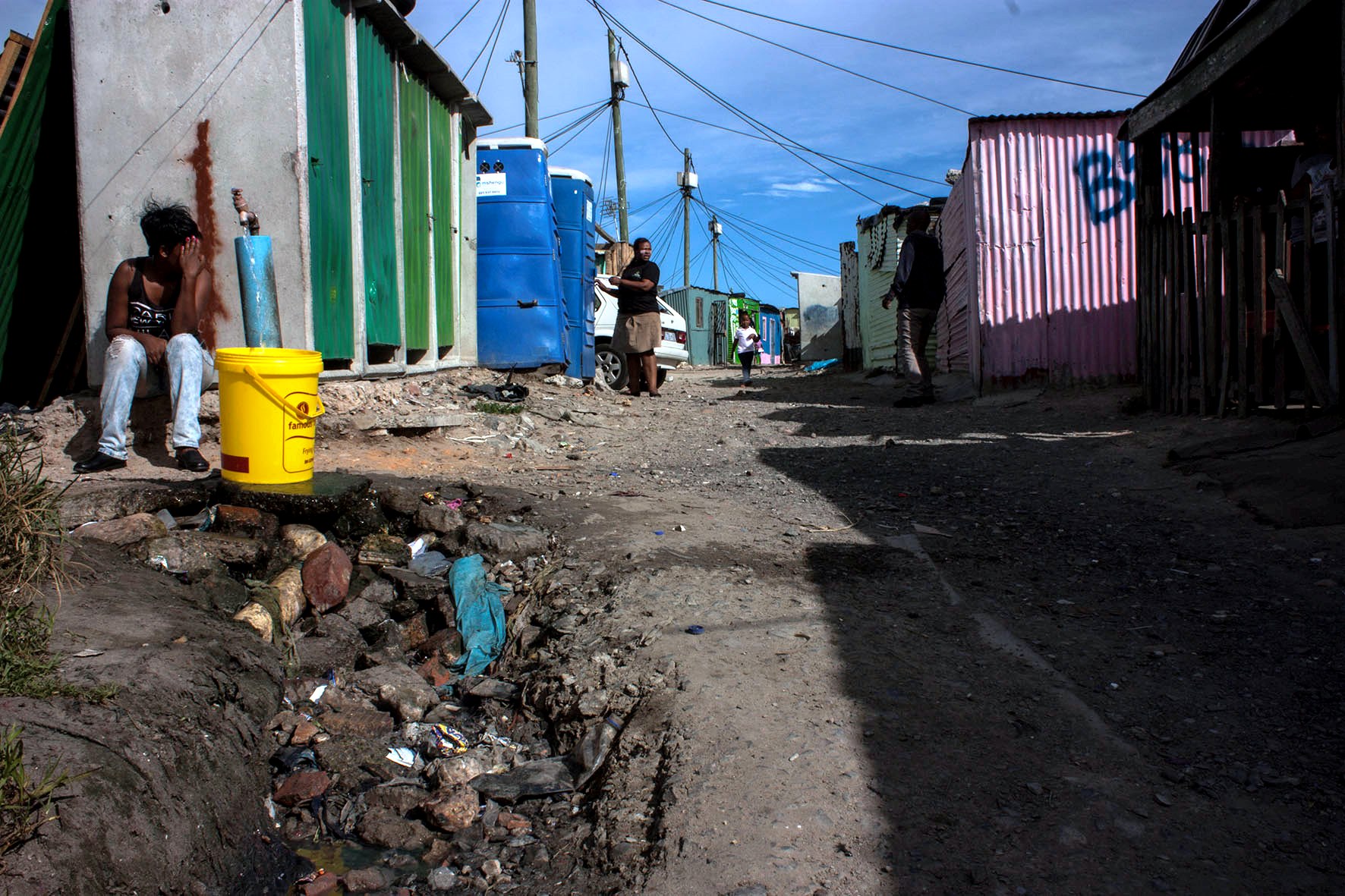
Ward 80 is an ANC stronghold and Pupa received 82% of the ward votes (7,943 of 9,412 valid votes) in the 2011 Local Government Elections. The DA candidate received only 11% of the vote, while the UDM candidate came third with 2.5% of the vote.
The 2011 results were slightly down from the previous local government election in 2006, when former ward councillor Moses Baskiti received 85% of the vote (with over 90% of the vote in seven of the eight voting stations).
At that election the DA was at just over 4%, pipped in second place by the ID who achieved about 5.5%. The DA and ID later merged after a coalition to wrest the city from the ANC, which effectively pushed the opposition vote in the ward to just under 10%.
If the trend continues, the ANC may lose some more ground in this year’s election, particularly since the complaints of non-delivery by residents of informal settlements in the ward appear widespread. But it is a safe bet that the majority of the residents will still choose the ANC.
However, some ANC branch members have said Pupa will not be included as a candidate for the upcoming elections.
From the entrance hall of her home, where she has set up her desk, Lizanne Shultz has a view of farm workshops and a chicken run. To her left is the living and dining room full of dark wooden furniture, and beyond that a bustling farm kitchen. The placement of her computer and desk is a manifestation of how many Philippi farmers’ balance management of the home and the business of farming.
Human resources, labour disputes, purchases, sales, tax returns and payments are all managed by Shultz, in between organising meals and raising her children.
Farming is a business and in most cases, it is the farmer’s wife who is the business manager. It is, with few exceptions, not a profitable business. Farmers receive virtually no state subsidy and have to contend with low prices for their produce and ever-rising prices for inputs, such as electricity, diesel, fertiliser and labour. Most of them live on bank overdrafts. The struggle is even tougher in Philippi, where in addition to the costs faced by all farmers, they are continually hamstrung by crime.
“Every morning we wake up to find something has been stolen during the night,” says Shultz. It is either vegetables from the lands, irrigation piping or even wooden stakes used to stabilise the plastic sprayer stands they now use instead of more robust aluminium sprayers.
She says the attitude of the Philippi police is lacklustre. With more serious crimes to deal with, theft is not high on their list of priorities. One station commander told her he wouldn’t bother even opening a case, unless the lands were fenced. Shultz says fencing the lands would simply be a waste of money as the fencing would be stolen the next night.
While driving around the area, GroundUp encountered another farmer. He gave his name only as Marius. Standing forlornly next to a pumphouse at a small irrigation dam, he said, “These pipes have been stolen again … I just replaced them on Saturday.”
“I don’t know. I just want to give it all up. Look at how we have to live.” He pointed to the heavily bolted door of the pumphouse with a sign warning that it was alarmed and booby-trapped with pepper spray.
“But people are hungry,” he said.
All three farmers GroundUp spoke to, who all happened to be white, acknowledged that people were unemployed, hungry and desperate, and that education and economic upliftment were needed for the situation to change.